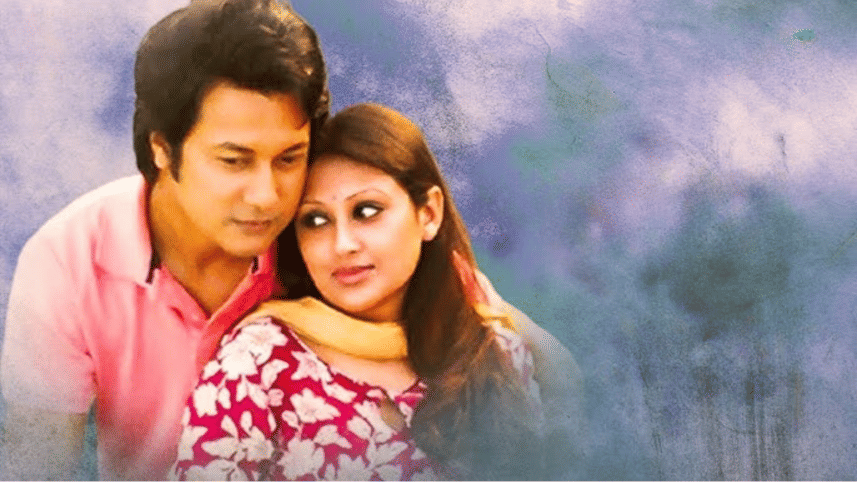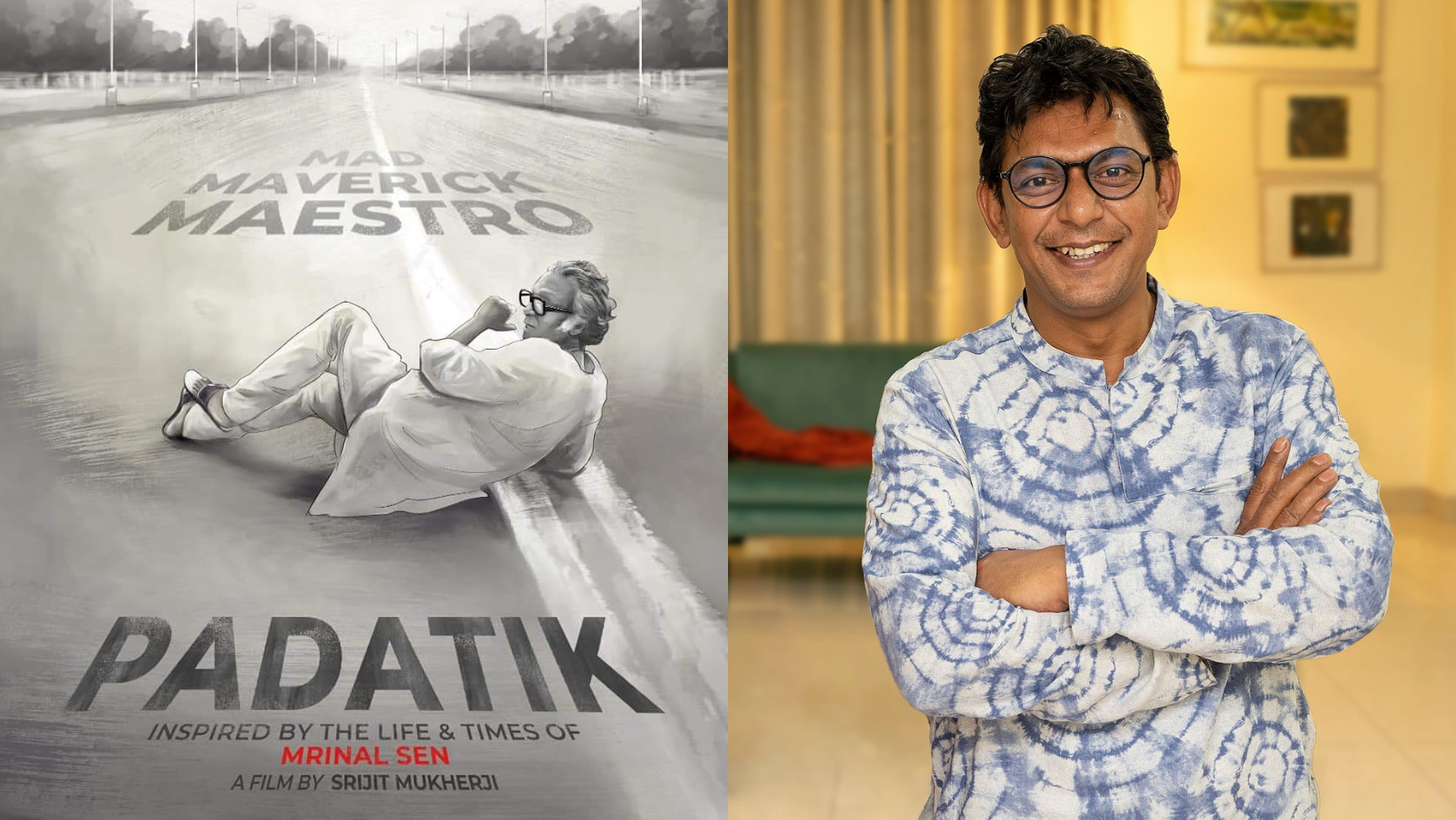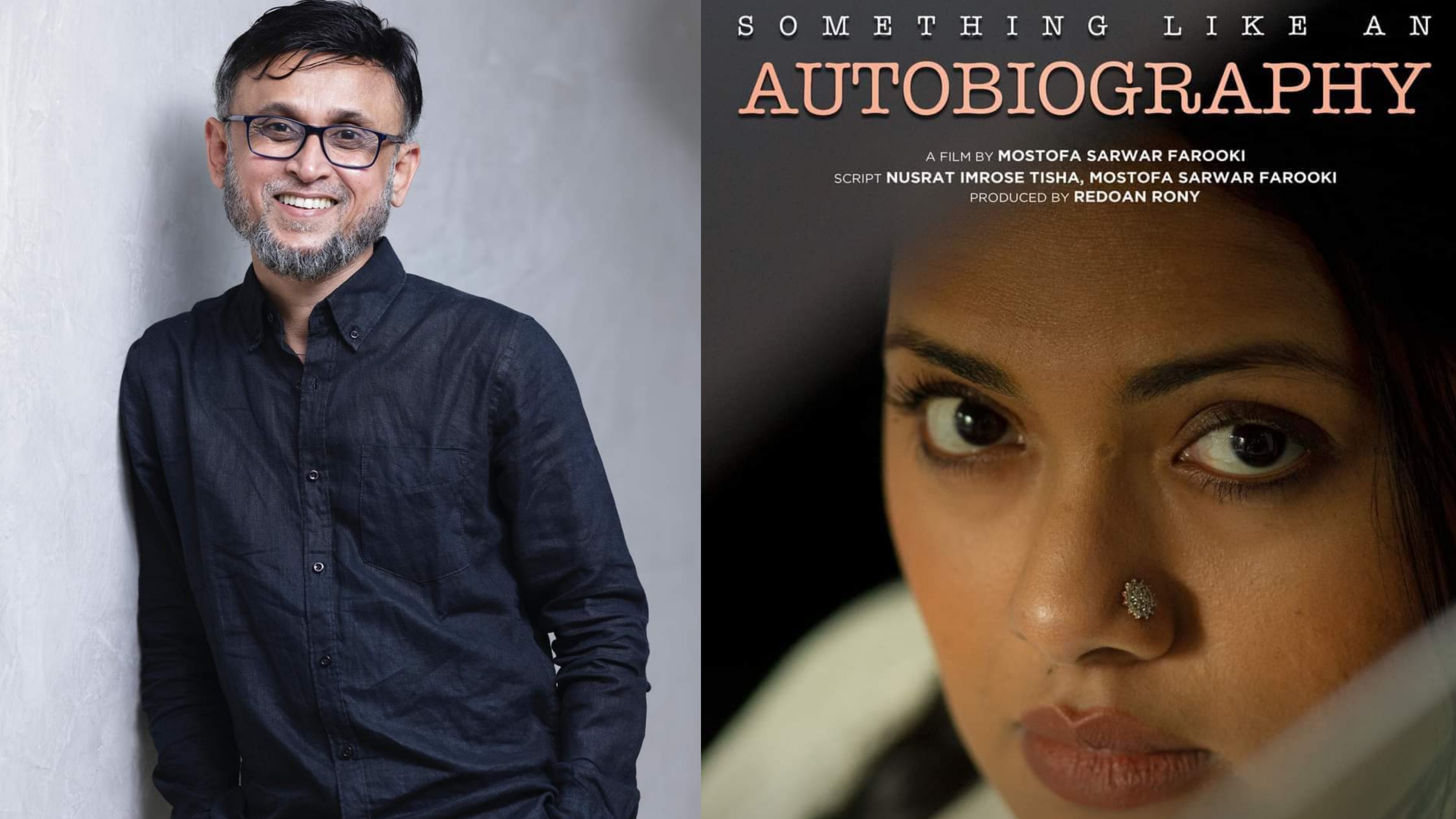A look back at ‘Gohine Shobdo’

The 2010 movie "Gohine Shobdo", directed by Khalid Mahmood Mithu, received widespread acclaim when it was released. Starring Mamnun Hasan Emon, Kusum Sikder, Masum Aziz, and Abul Hayat in lead roles, this movie narrates the relationship of a young couple in present-day Dhaka, with the country's Liberation War history and ongoing economic inequality impacting them. In my opinion, good storytelling, striking narration and apt metaphors make the movie a relevant watch to this day.
The movie is unique in its depiction of a mature relationship between two university-goers, Shopno and Niloy. Unlike most cinemas, we don't see an outright head-over-heels situation. Neither do we witness any orthodox austerity over emotions, quintessential in most works done previously. Rather, we see a very lively progression where the couple gradually gets to know each other and consequently discusses commitment.
However, in the seemingly perfect story, there looms a huge issue of societal status. Considering how Shopno's father (who used to be a Freedom Fighter) has to beg in the streets to support her education, she is unsure of the future of her relationship with well-off Niloy. We see the abject poverty they live under and are moved by the dedication and sensitivity in this father-daughter relationship.
This country's complex web of poverty and crime is delicately shown in this movie. It shows a begging racket in operation while also showing that these desperate individuals don't have any alternative mechanism to provide for themselves. We see the simultaneity of both truths.
The failure of the state to give its citizens due dignity can also be chalked out in the life of Shopno's father. As the Freedom Fighter begs in the streets, he fondly remembers his days during the war and is proud of the contribution he made to the war efforts. This aspect in turn can compel any viewer to ponder the condition of our Freedom Fighters and their selfless roles in the Liberation War.
The film affirms that indeed it's contemplative to visualise the parallels in the lives of Dhaka's elites and impoverished. From books to archives, while some stories are told and stored, some are lost in the wheel of time. These stories also convey that it's often one's socioeconomic status that determines the trajectory of recognition and respect one receives.
The idea that our emotions may be shaped by our socioeconomic status and experiences is duly stressed in the movie. As the couple navigates its journey, we are forced to question what makes the inequality in our society just. As some are left to suffer and some are left with redundant abundance, the movie makes us wonder what it means to truly love in situations that it presents.




 For all latest news, follow The Daily Star's Google News channel.
For all latest news, follow The Daily Star's Google News channel. 

Comments